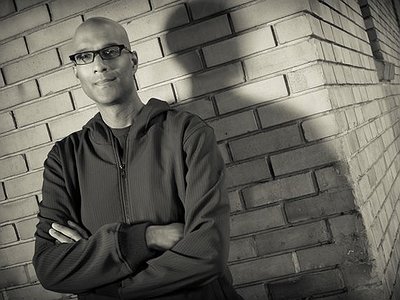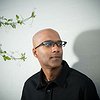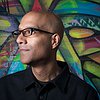When did you start writing about music—and what or who were your early passions and influences?
It all began in 1989, when I was writing for local newspapers in Ottawa, Canada, where I was attending university. The early passions revolved around what I’d call '80s adventurous pop along the lines of Talking Heads, Peter Gabriel, Laurie Anderson, New Order, and Wire. I was also influenced by ‘70s prog-rock and whatever of it remained by the late ‘80s. I was on the less corporate end of that spectrum, with an interest in the more 'out there' works by acts like King Crimson, Gentle Giant, Van der Graaf Generator, Mike Oldfield and early Genesis.
Another major early obsession was British folk and folk-rock, including acts like Fairport Convention, Steeleye Span, and Martin Carthy & Dave Swarbrick. I had a burgeoning interest in jazz and jazz-fusion at that point as well, being particularly fascinated by the work of Joe Zawinul, Miles Davis, Cannonball Adderley, Ornette Coleman, and Jamaaladeen Tacuma.
What are your main impulses to write about music?
A desire to share and bring attention to what I believe are outstanding musicians. It’s that simple. Why a music journalist would devote time, energy and passion to writing about music for any other reason is beyond me. Right from my early teenage years, I realized that the vast majority of popular music is outright useless crap. I would constantly push what I felt were interesting alternatives to my friends in high school and to anyone else willing to listen to my passionate early ramblings. I’m reasonably certain that engaging with the world of music journalism is an extension of those leanings.
Also, way back in the mid-to-late ‘80s, music magazines were the hippest things around. It’s where we mostly learned about what was going on. It was pre-Internet, pre-Facebook, pre-artists telling you about the milk fat percentage in their coffee creamer every morning on Twitter when they wake up. There was still a sense of mystery and 'going behind the curtain' via the world of music journalism. If you wanted to have an inkling about the people and processes that informed the music you loved, the main way you did that was to devour the music weeklies and monthlies, or be one of the people participating in the creation of content for them. I opted for the latter, while remaining addicted to the former.
What do you personally consider to be the incisive moments and pieces in your journalistic work and/or career?
My favorite moments in interviews are those in which artists reveal timeless and fundamental truths relating to creativity and spirituality. As the years have gone by, I’ve chosen to focus less on project-based interviews that deal with a specific, typically new release, which are highly ephemeral. My interviews with Joe Zawinul and Edgar Froese of Tangerine Dream are two of my favorites. Those are both currently available in the Innerviews book. Each interview successfully tapped into the artists’ prime reason for doing what they do. In Zawinul’s case, it was to tell stories about his culture and people, with the aim of creating cultural awareness, understanding and appreciation. For Froese, it was 'to help get people out of spiritual jail.'
A recent interview with Steven Wilson also falls into that category, in which he went into detail on the fact that he’s an atheist and how that worldview informs his art. He had never approached that perspective with a journalist before. Moments like that, when you know you’re travelling through previously-uncharted public territory for an artist, represent the most satisfying and fulfilling moments for me.
There are two upcoming interviews that are probably among the best I’ve ever done—Kronos Quartet and Nik Bärtsch. Both of these interviews epitomize the 'big picture' approach I’m moving towards. Kronos Quartet discusses the group’s entire timeline, documenting its larger ongoing motivations and collaborations, but also the complex personal challenges and events its members have navigated through, individually and collectively, throughout its nearly 40-year existence. Bärtsch explores the idea of why people become musicians and the responsibilities inherent in that decision, if you’re to make it a meaningful conduit for spreading knowledge.
How would you describe and rate the music scene of the city you are currently living in and how important is it in terms of what you're actually writing about?
I’ve lived in the San Francisco Bay Area for 15 years and it’s a remarkably diverse, open-minded place when it comes to music. It draws performers from every corner of the world and has proven transformative for me, putting the highest-caliber musicians in virtually every genre within reach for conversations. It’s one of the great music cities of the world and it’s a privilege to be a part of it.
The musician and listener community thrives on recommendations and word-of-mouth for music that really matters. Every time I tap into this network of people, I learn something new. If there’s a genre or sub-genre of music that’s of interest to you, you will find it somewhere in this city. You could be out every night of the week seeing live music, every day of the year, and you would only scratch the surface of the musical possibilities available in this area.




